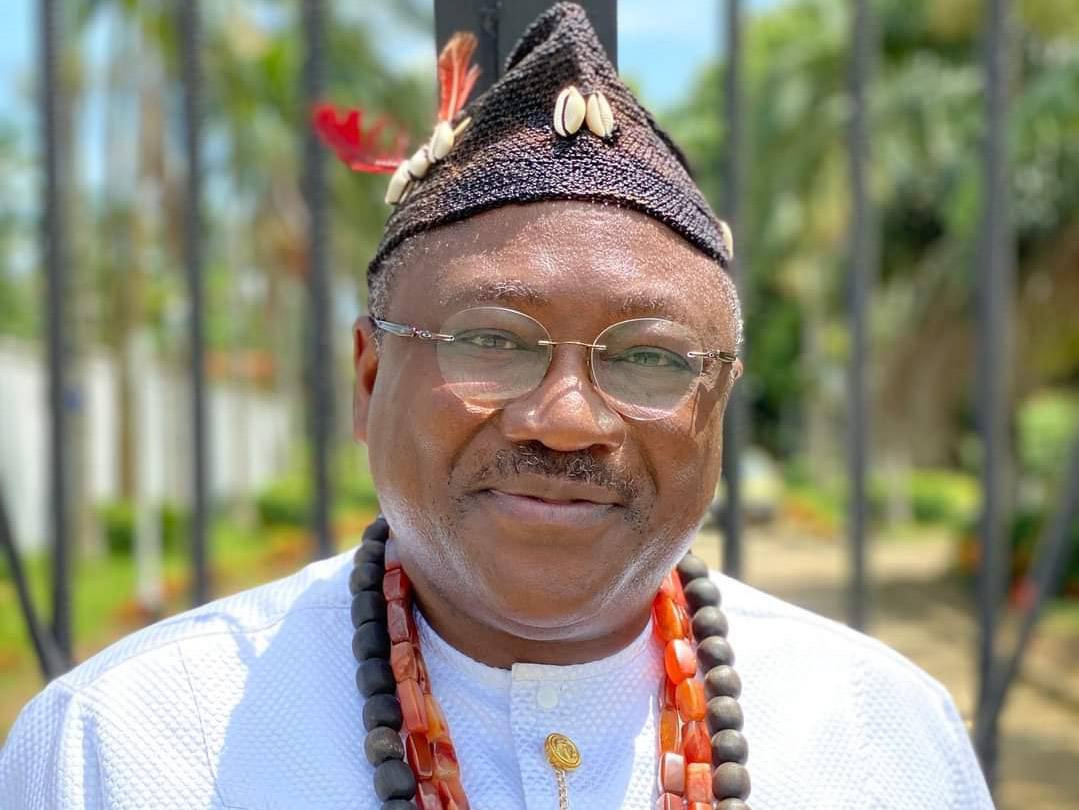By Colbert Gwain
In spite of the growing evidence that traditional rulers, monarchs, and even democratically elected leaders in Africa tend to cling to power indefinitely, even when their leadership is lacking, the Mukete royal family of the Bafaw dynasty in Cameroon's South West region stood out two years ago. Chief Mukete, a centenarian, willingly relinquished the throne to his fifty-year-old son, Ekoko Mukete.
HRH Nfon Mukete Ekoko Paramount Fon of the Bafaw Community
Amidst the tarnished reputation of elections in Africa, which often cast a negative light on Western-inspired democracy, the smooth transition within the Mukete lineage in the Bafaw kingdom provides a unique opportunity for Cameroonian and African intellectuals to initiate comprehensive discussions on consensual or Africanized democracy. This could serve as a way for Africa to promote its own brand of democracy to the world.
With the increasing number of highly educated and internationally experienced individuals joining the ranks of traditional leaders, who are less susceptible to manipulation by self-serving political elites, the emergence of young Chief Ekoko Mukete represents a chance to redefine and codify the impartial role of traditional rulers in society, particularly in relation to politics and development.
Former Paramount ruler Nfon V.E Mukete, who played a vital role in the independence and reunification of Cameroon, served as the paramount ruler of Kumba and the Bafaws for over 50 years. Realizing that his longevity could become a curse if he clung to power and deprived the younger generation of an opportunity to lead, he made the wise decision to abdicate and pass the throne to his youngest son, Ekoko Mukete.
Unlike other traditional rulers and elected leaders who invoke the "dictatorship of indispensability" once in power, Nfon V.E Mukete chose to hand over the throne and use his remaining days to impart wisdom and leadership skills to young Nfon Mukete IV Ekoko. This decision sends a message not only to those in authority in Cameroon but to the entire African continent that youth can be leaders of today, not just tomorrow.
Ekoko Mukete's leadership qualities in the business world have already earned him recognition and respect, including being named Honorary Consul of The Republic of Turkey to Cameroon. As the paramount ruler of the Bafaw people, he has resonated with the grassroots and other traditional authorities in his chiefdom, demonstrating the wisdom of his father's choice. He has already taken action by enrolling underprivileged individuals in vocational training centers, leading the fight against the COVID-19 pandemic, and organizing an ecumenical service to cleanse his land.
As the legitimate traditional spiritual leader of the people of Kumba and the Bafaw clan, Nfon Mukete IV Ekoko has become a crucial intermediary between the government, his people, and external actors in the development sector. Equipped with social capital and experience as a mediator and representative, he is well-suited to articulate the concerns of his community.
Young Nfon Mukete IV Ekoko's ascension to power coincides with a period when Cameroonian society seeks a place for neotraditional actors, such as the creation of a House of Chiefs for former West Cameroon. The roles and functions of traditional rulers have been significantly reduced since independence and the reintroduction of multiparty politics in Cameroon. However, with his education and experience, Nfon Mukete IV Ekoko is expected to understand his role as a political and spiritual leader, mediator, custodian of tradition, and organizer of communal labor.
Paramount chieftaincy in Cameroon and Africa has historically served as an instrument of elite formation, and the emergence of Nfon Mukete IV Ekoko is likely to usher in a new generation of young Bafaw elite. It is hoped that he will use the neotraditional system as a cultural asset to attract investment from both the government and private institutions.
The Nfon in a Christmas party in his palace with children
As the paramount ruler of Kumba, Nfon Mukete IV Ekoko represents a small part of the neotraditional system that extends to various offices within the Bafaw community. His recent endorsement by ruling families and chiefs from different Bafaw villages reinforces the discussion on consensual political systems, which could offer an Africanized form of government as an alternative to Western-style elections.
Over the years, the neotraditional institution of the Bafaws, like many other neotraditional institutions in Africa, has transformed from a political intermediary to a heterogeneous interest group. The early involvement of the paramount ruler of Kumba in agro-industrial development has been instrumental in maintaining power and earning respect during these transformative times.
Nfon Mukete IV Ekoko assumes the throne at a time when the traditional ruler's role is under scrutiny, and the process of selecting leaders has shifted. He also faces the challenge of ailing paramount rulers who cling to power despite their inability to fulfill their duties. Furthermore, some chiefs are questioning why the government refers to traditional rulers as "auxiliaries of the administration" when they hold divine right.
As we reflect on the wisdom of emeritus Nfon V.E Mukete's voluntary abdication after 50 years of rulership, we recognize the clarion call he is sending to other paramount rulers, monarchs, and elected leaders across Africa.
Therefore, as young Nfon Mukete assumes the throne during this challenging time for traditional authority in Cameroon and undertakes the tasks of consolidating his power, the preservation of this time-honored institution remains an existential concern.




